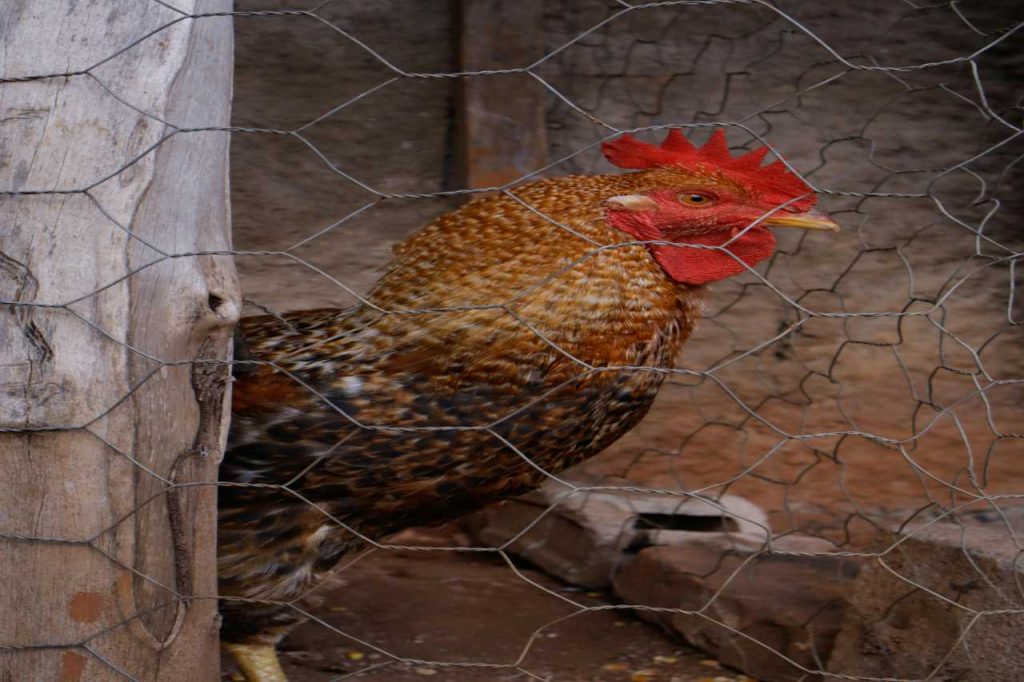Raising chickens is often seen as a rural activity, requiring open spaces, fresh air, and plenty of land for chickens to roam freely. But what if you don’t have any land at all? Is it possible to raise chickens in an urban environment like a city apartment, rooftop, or even indoors? The answer is yes, you can absolutely raise chickens with no traditional land—if you get creative and plan carefully.
This guide will take you through everything you need to know about raising chickens with no land, including space management tips, the best chicken breeds for small areas, housing options, feeding strategies, and how to ensure your chickens are happy, healthy, and productive.

Why People Raise Chickens with No Land
Raising chickens isn’t just for farmers anymore. People living in cities or homes with limited outdoor space are increasingly taking up urban farming, including raising chickens, to enjoy fresh eggs, sustainable food production, and the joy of keeping animals. There are several reasons why people with no land decide to raise chickens:
- Fresh Eggs: Raising chickens is one of the most cost-effective ways to have a constant supply of fresh, organic eggs. Even with no land, chickens can lay a good number of eggs if they are healthy and well-cared for.
- Sustainable Living: Keeping chickens can be part of a broader sustainability plan, allowing people to recycle kitchen scraps, compost manure, and reduce food waste. Urban chickens fit into the eco-friendly lifestyle many city dwellers aspire to.
- Connection to Nature: Chickens offer a wonderful way for people in urban settings to reconnect with nature. Watching them forage and care for themselves can be a calming, rewarding experience.
With these motivations in mind, let’s explore how you can make raising chickens work even without traditional land.
1. Finding the Right Space to Raise Chickens
Location, Location, Location! Raising chickens without land is all about making the most of the space you do have. Whether it’s a small patio, rooftop, or even a balcony, chickens don’t need acres of land to be happy. What they do need is a safe, secure, and comfortable environment.
Balcony Chicken Keeping
If you live in an apartment with a balcony, that space could serve as the perfect home for a couple of chickens. Ensure your balcony is enclosed with secure fencing or netting to prevent chickens from falling. Be mindful of the weather conditions—cover part of the balcony with a roof or a tarp to protect your chickens from rain, wind, and direct sunlight.
Rooftop Chicken Keeping
A rooftop coop is an ideal solution if you live in an apartment building with access to the roof. You can design a coop with lightweight materials to ensure it’s easy to manage and move if necessary. The rooftop coop should have proper drainage and shade to prevent overheating. City rooftops can be breezy, so create wind barriers to keep the chickens comfortable.
Indoor Chicken Keeping
Believe it or not, some urban chicken enthusiasts have successfully raised chickens indoors. While this is a less traditional option, with the right setup, you can keep chickens inside your apartment. You’ll need to build a secure indoor coop and provide them with ample opportunities to get outdoor exercise. Use a portable coop or harness to bring your chickens outside when possible.
Chicken Tractors for Small Yards
If you have a small yard, consider using a chicken tractor. This is a mobile coop that you can move around your yard, allowing chickens to forage for bugs and plants in different spots. A chicken tractor prevents the grass in one area from becoming too worn down, and it keeps your chickens busy and healthy.

2. Housing Your Chickens
Without land, housing becomes even more important for your chickens’ health and happiness. The chicken coop should be safe from predators, easy to clean, and provide adequate shelter from the elements. Here’s how you can set up housing for chickens without land:
Compact Coops
If you’re working with limited space, such as a balcony or rooftop, you’ll want a compact chicken coop. There are many designs that are small yet functional, offering space for roosting, nesting, and scratching. Multi-level coops or coops with attached runs work well in urban settings, maximizing space without compromising comfort.
Vertical Chicken Coops
In urban environments, space can be tight, but you can get creative by going vertical. A multi-level chicken coop can provide chickens with roosting space up top and a scratching area below. Think of it like an apartment building for chickens! This type of setup is ideal for small backyards, patios, or even rooftop setups.
Indoor Coops and Pens
Indoor chicken keeping requires careful planning. Create a dedicated area inside your home for your chickens, using portable pens or indoor coops that are easy to clean. It’s important to place the coop in a well-ventilated area to avoid the buildup of smells. Use absorbent bedding, like straw or wood shavings, and clean the area frequently to keep it sanitary.
3. Choosing the Right Chicken Breeds
Not all chicken breeds are well-suited for small spaces or urban environments. You’ll need to choose calm, adaptable breeds that don’t mind confinement and are quieter than others (especially if you have close neighbors).
Silkies
Silkies are a popular breed for urban chicken keepers because of their small size, friendly disposition, and fluffy appearance. They are docile and tend to adapt well to confined spaces.
Bantams
Bantams are essentially miniature chickens, making them perfect for those with very limited space. They are active and good foragers, so they’ll enjoy scratching around in a small coop or pen.
Orpingtons
Orpingtons are a larger breed but known for being gentle and adaptable. They are good layers and don’t mind being confined to a small space as long as their needs are met.
Leghorns
If egg production is a priority, Leghorns are excellent layers and can adapt to smaller coops or urban environments. They are active but manageable in a small space if you provide them with enough stimulation.
4. Feeding and Watering in Small Spaces
Even without land, chickens need the same level of care and nutrition as their country cousins. You can set up compact feeders and waterers to ensure your chickens have constant access to fresh food and water. Here are some ways to make feeding efficient in small areas:
- Hanging Feeders: Hanging feeders save floor space and keep the food cleaner.
- Automatic Waterers: Automatic waterers can provide a constant source of fresh water and are ideal for small coops or balconies where space is limited.
- Scraps and Treats: Chickens love scraps, and you can feed them leftover fruits, vegetables, and grains from your kitchen. Just be sure to avoid giving them harmful foods like onions, garlic, or chocolate.
5. Managing Waste and Cleanliness
Waste management is critical when raising chickens in small spaces, especially indoors or on a balcony. Chickens produce a lot of manure, but you can handle it effectively with the right strategies.
Deep Litter Method
In small outdoor spaces, consider using the deep litter method. This involves layering straw, wood shavings, or other organic materials on the coop floor, which composts over time and reduces odors. You can clean out the litter every few months, adding it to a compost pile if you have access to one.
Daily Cleaning for Indoors
If you’re raising chickens indoors, daily cleaning is essential. Use removable mats or poop trays in the coop for easy cleanup. Regularly replace bedding materials and ensure good ventilation to keep the air fresh.
Composting Waste
Chicken manure is rich in nutrients and can be an excellent fertilizer. If you don’t have land, find a community garden or urban composting project where you can donate your chicken manure.

6. Legal and Neighborhood Considerations
Before you start raising chickens with no land, it’s essential to check local laws and regulations. Many urban areas have specific rules about:
- The number of chickens you can keep.
- Whether or not you can keep roosters.
- The distance a coop must be from neighboring homes.
- Noise and odor control.
Some cities also require permits or inspections, so make sure you comply with any regulations to avoid fines or other issues. Additionally, speak with your neighbors before bringing chickens into a shared space to ensure they’re comfortable with the idea.
Conclusion: Raising Chickens Without Land Is Possible
Raising chickens with no land is not only possible but also highly rewarding. With thoughtful planning, the right space, proper care, and attention to cleanliness, your chickens can thrive in small areas like rooftops, balconies, or even indoors. Whether you’re after fresh eggs or a sustainable living experience, urban chicken-keeping can bring a little farm life to your city dwelling.
By choosing the right breed, setting up a compact but efficient coop, and managing waste properly, you can enjoy all the benefits of raising chickens without the need for a traditional farm. Get ready to embrace the joy of urban chicken farming and start your flock today!
